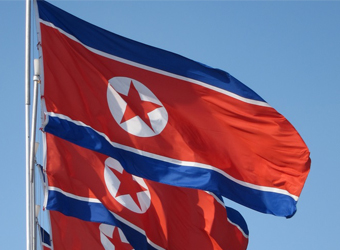North Korea on Tuesday banned Malaysians from leaving the country, prompting an immediate tit-for-tat response from Kuala Lumpur and dramatically escalating an already-heated diplomatic row over the murder of Kim Jong-Nam.
Pyongyang’s extraordinary move, which Malaysian Prime Minister Najib Razak said meant it was effectively holding our citizens hostage came as North Korea faced growing international condemnation for a volley of missiles it fired into the Sea of Japan.
Tuesday’s developments marked a severe heightening of tensions three weeks after the airport assassination of North Korean leader Kim Jong-Un’s half-brother, who was killed with the banned VX nerve agent.
The North decided to “temporarily ban the exit of Malaysian citizens in the DPRK”, Pyongyang’s official Korean Central News Agency said, citing the foreign ministry and using the North’s official name, the Democratic People’s Republic of Korea.
The bar would remain in place “until the safety of the diplomats and citizens of the DPRK in Malaysia is fully guaranteed through the fair settlement of the case that occurred in Malaysia”.
Reports said 11 Malaysians were currently in North Korea.
Najib condemned the ban, and said he was ordering a similar ban on the movement of all North Korean citizens in Malaysia.
Analysts said they could number around 1,000 people.
The home ministry had previously suggested the ban only affected diplomats and embassy officials.
“This abhorrent act, effectively holding our citizens hostage, is in total disregard of all international law and diplomatic norms,” Najib said, according to a statement.
“As a peace-loving nation, Malaysia is committed to maintaining friendly relations with all countries.
“However, protecting our citizens is my first priority, and we will not hesitate to take all measures necessary when they are threatened.”
Pyongyang and Kuala Lumpur had unusually strong links for years, but ties have rapidly degenerated in the weeks since Kim Jong-Nam was attacked at a Malaysian airport by two women using VX nerve agent, a chemical so deadly it is classed as a weapon of mass destruction by the UN.
Seoul has blamed Pyongyang for the assassination, and Kuala Lumpur wants to question several North Koreans, although the only one it arrested was released for lack of evidence.
The North has never confirmed the dead man’s identity, but has denounced the Malaysian investigation as an attempt to smear it.
Kuala Lumpur announced the expulsion of the North’s ambassador over the weekend. He flew to Beijing on Monday, after launching a final verbal assault on his hosts.
Kang Chol slammed what he called a pre-targeted investigation by the Malaysian police as he was leaving Kuala Lumpur.
Photographs later showed him sitting in the economy section of the plane.
Pyongyang retaliated by formally ordering out his counterpart, who had already been recalled for consultations.
According to KCNA, Pyongyang’s foreign ministry expressed hopes that the Malaysian government would solve the issue as early as possible from a position of goodwill and setting store by and developing the bilateral relations.
Malaysian diplomats and nationals in the North “may work and live normally under the same conditions and circumstances as before” while the travel ban is in place, it added.
The escalating diplomatic row already prompted Malaysia to cancel last week a rare visa-free travel deal with the North and to ban its national football team from playing an Asian Cup qualifying match in Pyongyang, citing security threats.
Pyongyang has accused Malaysia of plotting with the North’s arch-rivals Seoul and Washington to launch a “smear campaign” to tarnish the reputation of the country and its young leader.
The two women arrested over the killing- one Vietnamese and one Indonesian- have been charged with murder.
Source: AFP


